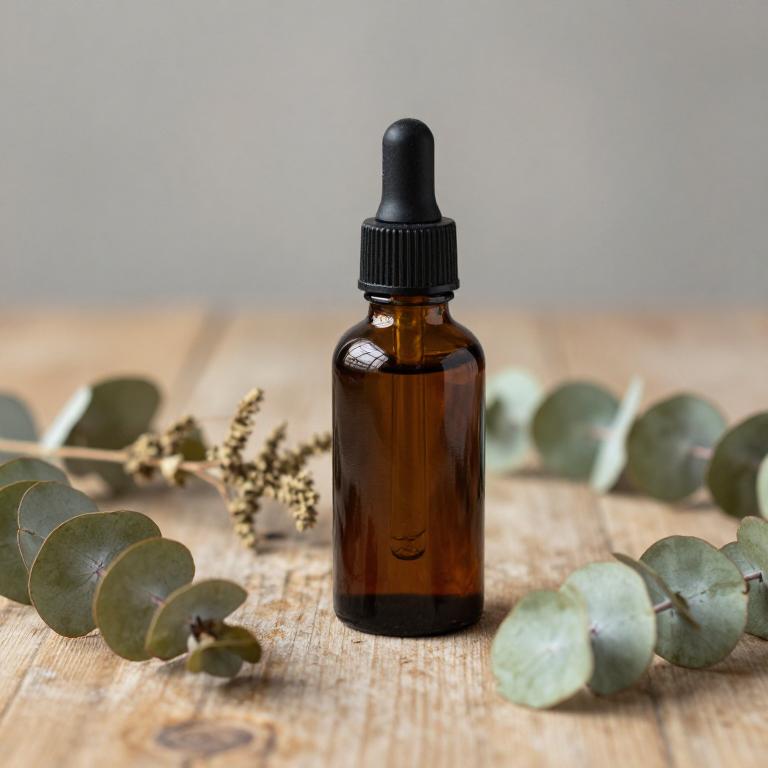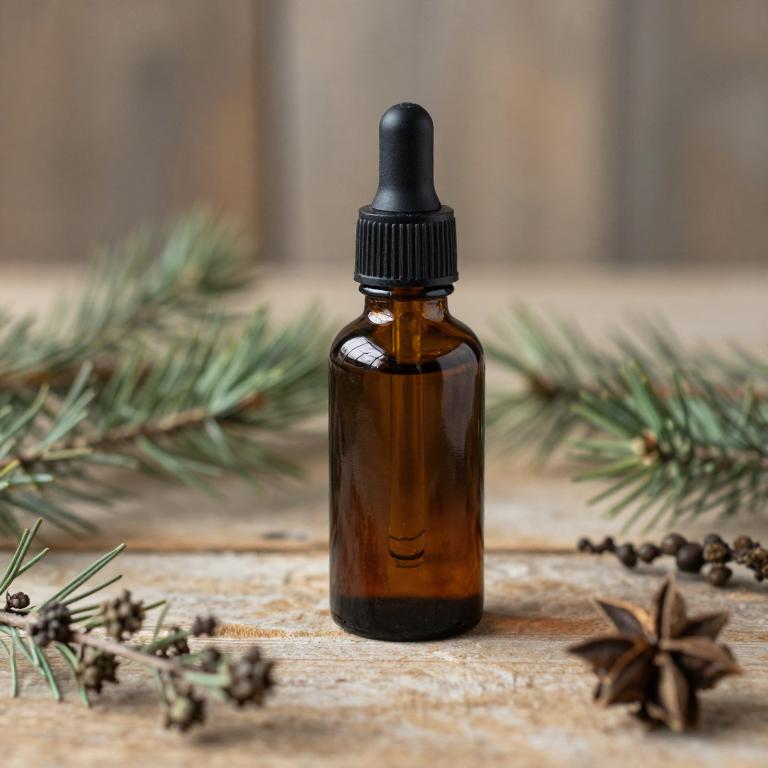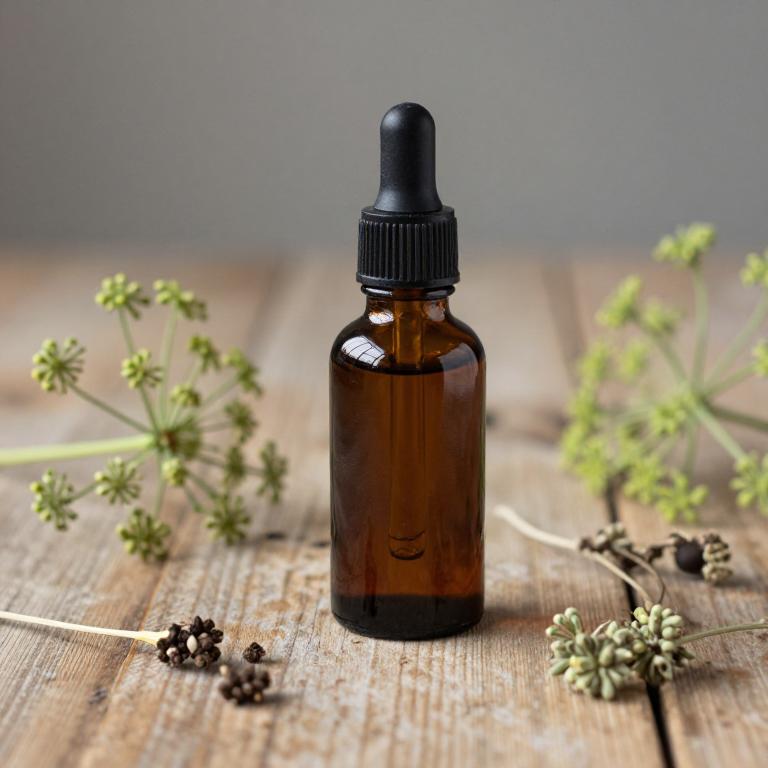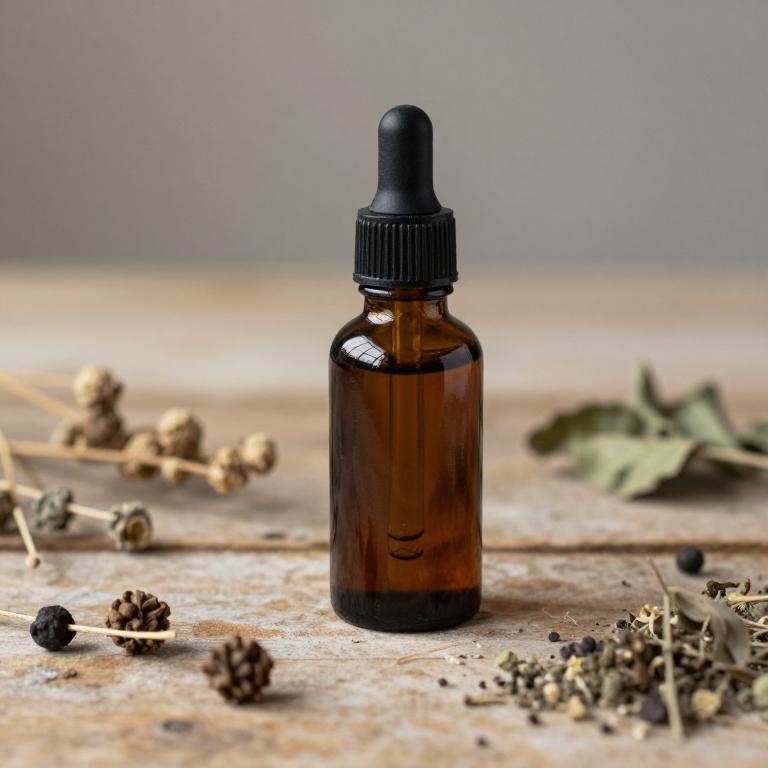10 Best Herbal Tinctures For Chest Congestion

Herbal tinctures are concentrated liquid extracts made from medicinal plants, commonly used to alleviate symptoms of chest congestion.
These tinctures often contain herbs such as eucalyptus, ginger, thyme, and ivy, which are known for their expectorant and anti-inflammatory properties. They work by helping to loosen mucus, reduce inflammation in the airways, and ease breathing. Many people prefer tinctures over conventional medications due to their natural composition and fewer side effects.
However, it is important to consult a healthcare professional before using herbal tinctures, especially for individuals with chronic respiratory conditions or those taking other medications.
Table of Contents
- 1. Eucalyptus (Eucalyptus globulus)
- 2. Thyme (Thymus vulgaris)
- 3. Peppermint (Mentha piperita)
- 4. Ginger (Zingiber officinale)
- 5. Fennel (Foeniculum vulgare)
- 6. Licorice (Glycyrrhiza glabra)
- 7. Scots pine (Pinus sylvestris)
- 8. Anise (Pimpinella anisum)
- 9. Salvia (Salvia officinalis)
- 10. Ceylon cinnamon (Cinnamomum verum)
1. Eucalyptus (Eucalyptus globulus)

Eucalyptus globulus, commonly known as the Tasmanian eucalyptus, is widely used in herbal tinctures for its potent decongestant properties.
These tinctures are traditionally employed to alleviate symptoms of chest congestion by promoting respiratory clarity and reducing mucus buildup. The active compounds in eucalyptus, such as cineole, have antimicrobial and anti-inflammatory effects that help soothe irritated airways. When used as a chest rub or inhalant, the tincture can provide relief from coughing and difficulty breathing.
However, it is important to consult a healthcare professional before use, especially for individuals with asthma or other respiratory conditions.
2. Thyme (Thymus vulgaris)

Thymus vulgaris, commonly known as thyme, is a popular herb used in herbal tinctures to alleviate symptoms of chest congestion.
The tinctures are typically prepared by steeping the dried leaves and flowers of the plant in alcohol, which helps extract its medicinal compounds. Thyme contains thymol, a potent antioxidant and antiseptic that helps reduce inflammation and loosen mucus in the respiratory tract. These tinctures are often used as a natural remedy to support respiratory health and ease breathing in cases of coughing or chest tightness.
When used as directed, thyme tinctures can provide soothing relief and are generally considered safe for most adults, though they should be avoided during pregnancy or by those with known allergies.
3. Peppermint (Mentha piperita)

Mentha piperita, commonly known as peppermint, is a popular herb used in tinctures to alleviate symptoms of chest congestion.
These tinctures work by stimulating the respiratory system and helping to clear mucus from the airways. Peppermint contains menthol, which has a cooling effect and can ease breathing by relaxing the muscles in the bronchial tubes. The aromatic properties of peppermint also help to open up the nasal passages, making it easier to breathe.
When used as a chest rub or inhalant, peppermint tinctures can provide quick relief from coughing and congestion associated with colds or respiratory infections.
4. Ginger (Zingiber officinale)

Zingiber officinale, commonly known as ginger, has been traditionally used for its medicinal properties, and its herbal tinctures are increasingly recognized for their potential in alleviating chest congestion.
The active compounds in ginger, such as gingerol and shogaol, possess anti-inflammatory and bronchodilatory effects that may help reduce mucus production and ease breathing difficulties. When prepared as a tincture, ginger can be easily absorbed into the bloodstream, offering a concentrated form of its therapeutic benefits. It is often used in combination with other herbs like eucalyptus or thyme to enhance its effectiveness for respiratory support.
However, individuals with certain health conditions or those taking medications should consult a healthcare provider before using ginger tinctures for chest congestion.
5. Fennel (Foeniculum vulgare)

Foeniculum vulgare, commonly known as fennel, is a herb widely used in herbal medicine for its soothing properties, particularly in addressing chest congestion.
Fennel tinctures are often prepared using the dried seeds of the plant, which are rich in compounds like anethole and flavonoids that exhibit anti-inflammatory and expectorant effects. These tinctures can help ease respiratory discomfort by reducing mucus buildup and promoting easier breathing. When taken internally, fennel tinctures may support the body's natural ability to clear congestion from the lungs and airways.
However, it is important to consult with a healthcare professional before using fennel tinctures, especially for individuals with existing health conditions or those taking other medications.
6. Licorice (Glycyrrhiza glabra)

Glycyrrhiza glabra, commonly known as licorice root, is a traditional herb widely used in herbal medicine for its soothing properties.
Licorice root tinctures are often employed to alleviate symptoms of chest congestion due to their expectorant and anti-inflammatory effects. The active compounds, such as glycyrrhizin and flavonoids, help to loosen mucus and reduce irritation in the respiratory tract. These tinctures may also support the immune system and ease coughing associated with colds or respiratory infections.
However, long-term use should be monitored, as excessive consumption can lead to side effects like hypertension.
7. Scots pine (Pinus sylvestris)

Pinus sylvestris, commonly known as Scots pine, has been traditionally used in herbal medicine for its respiratory benefits, particularly in alleviating chest congestion.
The tinctures derived from its needles and resin are rich in bioactive compounds such as terpenes, flavonoids, and essential oils, which possess anti-inflammatory and expectorant properties. These tinctures work by helping to loosen mucus and reduce inflammation in the airways, making them beneficial for individuals suffering from bronchitis, coughs, or other respiratory conditions. When used as part of a holistic treatment plan, Scots pine tinctures can support clearer breathing and enhance the body's natural ability to expel congestion.
However, it is important to consult with a healthcare professional before use, especially for those with existing medical conditions or who are taking other medications.
8. Anise (Pimpinella anisum)

Pimpinella anisum, commonly known as anise, is often used in herbal tinctures to help alleviate symptoms of chest congestion due to its expectorant and antispasmodic properties.
These tinctures work by loosening mucus in the respiratory tract, making it easier to cough up and reducing the feeling of tightness in the chest. The essential oils found in anise, such as anethol, have a soothing effect on the bronchial passages, promoting easier breathing. Herbal tinctures made from anise are typically prepared by steeping the dried seeds in alcohol, creating a concentrated form that can be taken in small doses.
While generally considered safe, it is important to consult with a healthcare professional before using anise tinctures, especially for individuals with pre-existing medical conditions or those taking other medications.
9. Salvia (Salvia officinalis)

Salvia officinalis, commonly known as sage, is often used in herbal tinctures to help alleviate symptoms of chest congestion.
These tinctures are typically prepared by soaking dried sage leaves in alcohol, allowing the active compounds to extract into the liquid. Sage contains compounds like thujone and flavonoids, which may help reduce inflammation and soothe the respiratory tract. When used as a chest rub or taken internally in small doses, sage tinctures may help loosen mucus and ease breathing in individuals with mild respiratory discomfort.
However, it is important to consult a healthcare professional before using sage tinctures, especially for prolonged periods or in combination with other medications.
10. Ceylon cinnamon (Cinnamomum verum)

Cinnamomum verum, commonly known as true cinnamon, has been traditionally used in herbal medicine for its warming and anti-inflammatory properties.
When prepared as a tincture, it can help alleviate symptoms of chest congestion by promoting respiratory comfort and reducing mucus buildup. The active compounds in cinnamon, such as cinnamaldehyde and eugenol, possess expectorant and bronchodilator effects that support clearer breathing. However, it is important to use cinnamon tinctures in moderation and consult a healthcare professional, especially for those with existing health conditions or allergies.
This herbal remedy is often used in combination with other natural ingredients to enhance its therapeutic benefits for respiratory support.